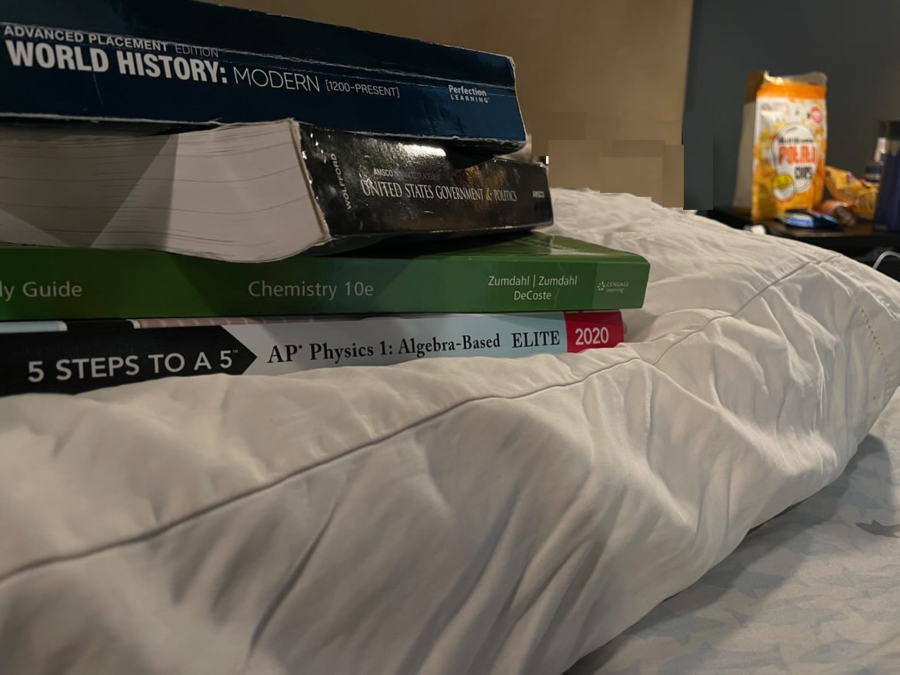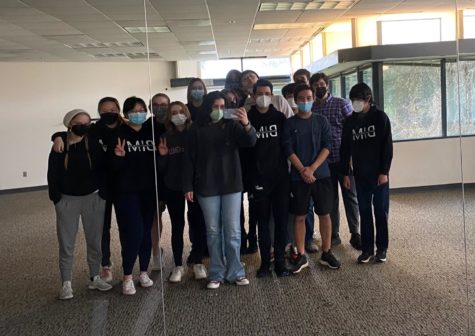Academic Pressure: Tips from a Senior on How to Make Time for Sleep
Before I came to BASIS, I attended McLean High School for two years, and I can attest to the difference in study culture and expectations between the two schools. At McLean, rarely did any students take AP courses during their freshman year, and top-performing students took a maximum of 2-3 APs during their sophomore year. For BASIS students, however, I found that it wasn’t uncommon to take upwards of 4-5 APs during both their freshman and sophomore years. I have known some students who have been with BASIS since their freshman years who have accumulated somewhere between 12-15 AP exam scores by the end of their junior year – something that would be unheard of at your typical public high school.
This high degree of achievement speaks even more to the need for younger students to develop effective and healthy study habits. Within this article, I ultimately hope to share some of the things I have learned as a soon-to-be high school graduate so that you might not have the trial-and-error as much as I did.
Throughout high school, and especially during the beginning, I struggled to get good sleep. I was a rower during my freshman and sophomore years of high school, and the demanding schedule then made it especially difficult. From Monday through Friday, rowing would take up my afternoon and evenings up to 7 or 8 pm, then I would come home to assignments and study schedules afterward. I spent the majority of my nights going to bed around 2-3 am, having to wake up at 6:30 the next morning. However, although not nearly perfected, my sleep habits have gotten significantly better over the last two years.
It is not uncommon for students with demanding course loads to hyperfocus on their studies while ignoring their physical and mental health. While certain study habits and techniques can be helpful for learning and retaining knowledge, they cannot replace “the fundamentals” when it comes to self-care. In the same way taking vitamin supplements can’t compensate for the effects of an unhealthy diet, picking up study techniques (pomodoro, SQ3R, PQ4R, Feynman, etc) can’t negate the detrimental effects of working on five hours of sleep every day. However, while it is easy to create an intention to get eight hours of sleep a night, the execution can be more challenging than expected. With that being said, here are a few things to keep in mind that have helped me:
Exercise: Playing a sport or hitting the gym is not only beneficial for overall physical health, but has also shown to increase sleep quality by reducing sleep onset – the time it takes to fall asleep. Sleeping additionally improves sleep quality by “[increasing] the amount of slow wave sleep you get” (‘slow wave sleep’ refers to deep sleep). Staying physically fit has a myriad of other academic benefits not necessarily related to sleep quality, but sleeping better is certainly one of them.
Limiting effects of blue light: Light in any form or capacity obstructs the secretion of melatonin, but blue light does so more powerfully. Thus, it is often advised to limit blue light exposure during the hour before you go to bed. Although proven to be effective, I found this difficult. I was working on my computer a lot late at night, so creating that hour-long buffer zone was a challenge. One strategy that helped me overcome this was changing the order in which I did my assignments to allow me to shut off my computer earlier. For example, math homework has almost always been a paper-and-pen assignment for me since problems/exercises came out of a physical textbook, so by making it the last thing I do before I go to bed, I was able to avoid looking at a screen later at night.
Light exposure: Simple fix to help with an altered circadian rhythm. Try exposing yourself to more light when you wake up (turning on bright lights in your room/house, opening windows, etc.), and reducing light exposure when going to sleep (limiting screen time, dimming room lights, etc.).
Time management: Because there are only so many hours in the day, I found it important to stay organized. On top of figuring out how to fall asleep early and get good quality sleep, I needed to create schedules that left room for 8-9 hours to fall asleep and wake up. This meant being able to study and do homework as efficiently and effectively as possible. I’ve found repeatedly through experience that the one thing that prevented me from being efficient with my work was attempting to multitask – whether it was trying to do two assignments at once, or work while watching TV.
While there are a number of approaches and strategies out there to help you stay focused, I found that planning my days to the half-hour helped me to very deliberately block out time to focus and work, and times to relax and unwind. Other strategies include the Pomodoro Technique, and apps such as the Forest App that deter you from using your phone/computer.
There are plenty of other tactics, strategies, and information out there regarding sleep quality. These are a few that I have tried/tested myself, but as everyone works differently, some of these might help, and some might not. Contrary to what I believed for a long time, getting more sleep doesn’t have to come at the expense of achieving good grades (and vice versa)! Learn from my mistakes, and build good habits that will help you throughout high school.



